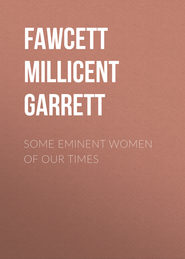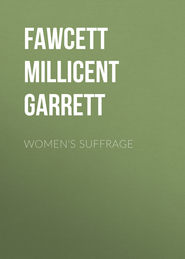По всем вопросам обращайтесь на: info@litportal.ru
(©) 2003-2024.
✖
The Women's Victory—and After: Personal Reminiscences, 1911-1918
Настройки чтения
Размер шрифта
Высота строк
Поля
1918. Midwives Amending Act, 1918, removes some of the weaknesses of the Act of 1902, and is sufficiently described in the foregoing chapter.
1919. Sex Disqualification Removal Act.– This Government Act has already been sufficiently described. The wider and more sweeping measure introduced by the Labour Party passed all its stages in the House of Commons, notwithstanding Government opposition.
1919. The Intestate Moveable Succession (Scotland) Act enlarges a Scottish mother's rights of succession to the intestate moveable estate of her children.
1919. Nurses' Registration Act, 1919. – Trained nurses without the vote had been working for registration for thirty-two years. The principle of registration was accepted by the Government, and the Act embodying it carried into law the year following the enfranchisement of women.
1919. The Industrial Courts Act was improved by the Government accepting the amendment of the Labour Party that one or more members of these courts should be women.
It will be seen from the foregoing survey of the legislative activity of Parliament in the eighteen years under review that they divide themselves into two unequal portions, 1902-1914 and 1918-1919. The war years are omitted for obvious reasons. In the first and longer period of fifteen years we find five measures of varying importance – that is, at the rate of one to every three years. By far the most important of these measures are the Midwives Act, 1902, and the series of Acts dealing with the qualifications of women for local government elections; both of these were due to years of hard work – twelve in one case, and fourteen in the other – of very active and efficient women's societies. In the second, and far shorter, period, of less than two years – February, 1918, to November, 1919 – we find seven Acts of value and importance slipping through Parliament without any trouble at all; ministerial swords leaping from their scabbards to remove impediments from the path of the free citizenship of women. This is the "difference" the vote has made.
notes
1
This pointed to the probable application of the Parliament Act to the proposed Reform Bill.
2
In view of the promise which had just been exacted of me not to use violence towards the Chancellor, the presence of his wife and daughter might have been explained on the hypothesis that in the event of assault and battery on our part they could have flung their persons between their husband and father and his assailants. But this possible explanation of the presence of these ladies did not occur to me at the time.
3
Antisuffragists in the country had taken up the campaign of calumny against us, and had spoken of suffragists as "purveyors of vile literature," disseminators of "pestilential doctrines," and had used other flowers of rhetoric of the same description.
4
See correspondence in the Morning Post, January 14th to 21st, 1918.
5
The Bill was named the Franchise and Registration Bill, not a Bill to Amend the Representation of the People.
6
Of these 8,654,467, more than 7,000,000 were white men enlisted within the British Empire. (See Report of War Cabinet published in August, 1919.)
7
In March, 1919, the Council of the N.U.W.S.S. changed the name of our society to the National Union of Societies for Equal Citizenship, and elected Miss Rathbone as its president.
8
The report of the Speaker's conference was dated January 27th, 1917. The clause recommending woman suffrage ran as follows:
VIII. Woman Suffrage
The conference decided by a majority that some measure of woman suffrage should be conferred. A majority of the conference was also of opinion that if Parliament should decide to accept the principle, the most practical form would be to confer the vote in the terms of the following resolution:
"Any woman on the Local Government Register who has attained a specified age, and the wife of any man who is on that register, if she has attained that age, shall be entitled to be registered and to vote as a parliamentary elector."
Various ages were discussed, of which thirty and thirty-five received most favour. The conference further resolved that if Parliament decides to enfranchise women, a woman of the specified age who is a graduate of any University having parliamentary representation shall be entitled to vote as a University elector.







